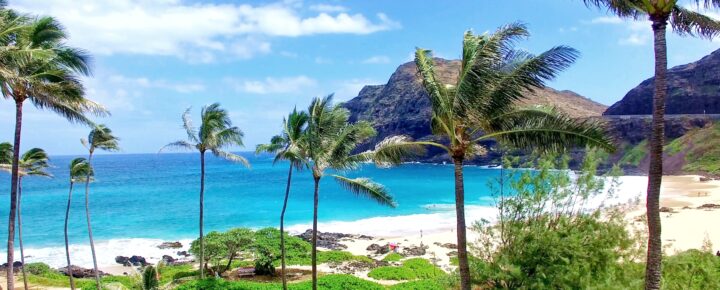As Hawaii’s 2025 legislative session opens on January 15, a revived visitor fee proposal will take center stage. This time, inspiration may also come from the Maldives, a tropical island destination 370 miles south of India that most recently introduced a tiered departure tax targeting travelers based on their airline class and, in their case, residency. Could Hawaii adopt a somewhat similar system, or are the state’s legal and logistical hurdles and ongoing tourism challenges too much to overcome?
The Maldives sets a new standard.
The Maldives is in a somewhat different situation as a country, rather than a state. They implemented a bold departure tax system, charging foreign travelers $50 for economy class, $120 for business class, and $240 for first class. Residents pay less, emphasizing a balance between encouraging local travel and ensuring tourists contribute to environmental preservation.
The move is part of a global trend among tourism-dependent destinations to manage growing visitor numbers while protecting fragile ecosystems. By targeting luxury travelers with higher fees, the Maldives interestingly demonstrates how tiered systems can generate significant revenue without alienating budget-conscious tourists.
Hawaii’s visitor fee journey is similar yet different.
Hawaii’s attempts to introduce a visitor fee have been long and contentious. The 2024 proposal, Senate Bill SB304, suggested a $50 “impact fee” requiring visitors aged 15 and older to purchase a one-year license to access state parks and other natural areas. Despite strong support from Governor Josh Green, the bill failed to pass.
Governor Green has also conceptualized a $25 “climate impact fee” to be collected at accommodations. This plan, estimated to raise $68 million annually, aims to fund environmental preservation and climate change mitigation. However, the proposal must overcome significant legal, economic, and political challenges.
Can Hawaii implement tiered fees?
Hawaii could take inspiration from the Maldives by charging visitors differently based on their travel choices, such as business or economy-class flights and luxury accommodations. This approach mirrors the Maldives’ system and aligns with the principle of tying fees to environmental impact.
For example, could airlines collect a tiered environmental fee based on ticket class, with premium travelers paying more to contribute to conservation programs in Hawaii? Similarly, might luxury resorts and vacation rentals include higher green fees in their pricing, ensuring sustainability efforts are funded without disproportionately burdening budget travelers. Exclusive tours and activities could also feature elevated fees, targeting high-spending tourists who are more likely to invest in premium experiences.
Hawaii fees would almost certainly be tied to services rather than residency, ensuring compliance with the U.S. Constitution. This system could align with Hawaii’s goals while avoiding legal pitfalls.
Legal differences and solutions.
Unlike the Maldives, a sovereign nation with complete control over its tax system, the Commerce Clause prohibits states from enacting laws that discriminate against or unduly burden interstate commerce. To succeed, Hawaii’s visitor fee must apply uniformly, without explicitly targeting visitors.
That is already the case with the Hawaii accommodations taxes, which we, as residents, pay to the same approximately 18% degree as visitors.
Green fee: a pivotal moment for Hawaii travel.
As the 2025 legislative session begins, Hawaii faces a critical opportunity to lead the way in sustainable tourism. The Maldives’ tiered departure tax offers a partial model of how such fees can be effectively structured and communicated.
The question remains: Can Hawaii adapt global solutions to fit its unique legal and cultural landscape, or will its visitor fee again fall short of expectations and fail? The answer could shape the future of Hawaii’s tourism economy and environmental preservation efforts.
What are your thoughts and expectations about Hawaii implementing a visitor fee?
Get Breaking Hawaii Travel News







Unless they plan on charging residents they legally cannot charge other United States citizens coming and going from the state
isnt the Maldives now owned by china?
Give me a break. The last few articles were written explained the waste water the shrimp facility was releasing into the bay. The next was glass beach where glass bottles were disposed being a trash dump at one time. Hey what’s with making the tourist pay an environmental fee. Who’s fault is it? Not the tourist so why does the tourist have to pay for Hawaii’s mistakes? Locals and residents need to scream about this stuff and it seems the only solution for the state is to pass the buck on someone else. IMO just wrong and not right. Please Hawaii take responsibility.
Hawai’i couldn’t manage its way out of a paper bag. I’m tired of waste and ridiculous government spending. The rail could’ve been done 15 years ago for 1/5th the price by simply calling Japan over to design and build it, instead the unions take us all hostage. I won’t gave them another 5¢.
Keeping charging the main staple of hawaii, which is tourism is another terrible idea of Josh green.
Public toilet are embarrassing in any park abused by Homeless , not tourists.
I’ll eat my hat if any of these visitor fees are actually used for environmental preservation of any sort. They all end up in general revenue. These fees are a newly discovered cash cow and you can bet that they will be milked for all they’re worth. And in many cases they’ll be payback for all the promised tariffs coming soon.
People are sick and tired of all these little fees and extra taxes. And no-one really know where the money goes. I would suggest a program that offers each traveler a chance to donate to a fund. Donors would get a set of discount activity coupons that would be honored by most activity providers and restaurants.
Look, if the Maldives can charge up to $240 for first-class travelers and people still flock there, it seems to me that Hawaii is leaving money on the table. Luxury travelers won’t blink at a few extra dollars, and you could generate millions for conservation without pricing out the average family. Just stop hesitating and do it.
The Maldives isn’t doing to well with tourism these days, look it up. They’ve gone full in on Sh’iara law, can only drink on private islands. It’s a Dump.
Charging business-class passengers more might make sense on paper, but it’s going to alienate travelers who already pay a premium to visit Hawaii. This too feels short-sighted to me.
I visit Hawaii every single year and would gladly pay this fee if it actually went somewhere to help protect the environment. But I’ve seen fees like this before, and somehow they just vanish into general funds. Prove to me this money will make a difference, and I’ll support it with others.
Residents shouldn’t have to pay. It is so challenging to live here already. Not sure how this an even work.
Any US citizen should not have to pay…. imagine a scenario that as a Hawaii resident, you had to pay a fee to visit other US states. Going to Vegas, CO, or CA?, a $50 fee to visit the state on top of all of the other hotel/car/whatever other taxes the state decides to charge that impacts visitors.
It isn’t even about the money… it is the lack of aloha and the feeling of discrimination on Greens part, he has already made it clear that he wants people from other countries such as Japan, instead of US visitors.
Would the fees dedicated to a specific purpose or just end up in Hawaii’s “general fund” with all of the other taxes and fees?
Hawaii government agencies charge a whopping 17.962 tax for the privilege of renting a hotel room. The car rent tax and fees add the following: Customer Facility Charge: ($4.50 per day); GENERAL EXCISE TAX: (4.17%); AIRPORT CONCESSION FEE: (11.11%); RENTAL VEHICLE SCHG: ($3.00 per day); VEHICLE LICENSE FEE: ($0.41 per day).
While I agree that tourism imposes costs and stress on the environment, I think tourists already contribute enough. I note that Venice has a cover charge of about $10 for visitors on certain days who don’t pay hotel taxes.
Has anyone considered the negative financial consequences of your concerted effort to make tourism out of reach for many? I recall the adage that bulls and bears make money in the stock market and pigs get slaughtered.
The taxes to rent a hotel or condo are through the roof. I hear millions of dollars a year. Where are all these funds going? They definitely don’t put much back into infrastructure.